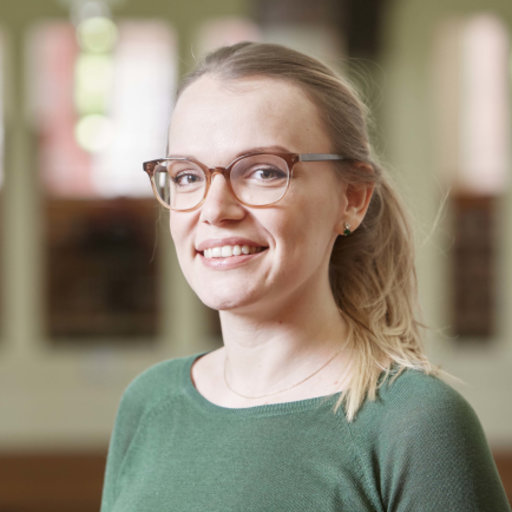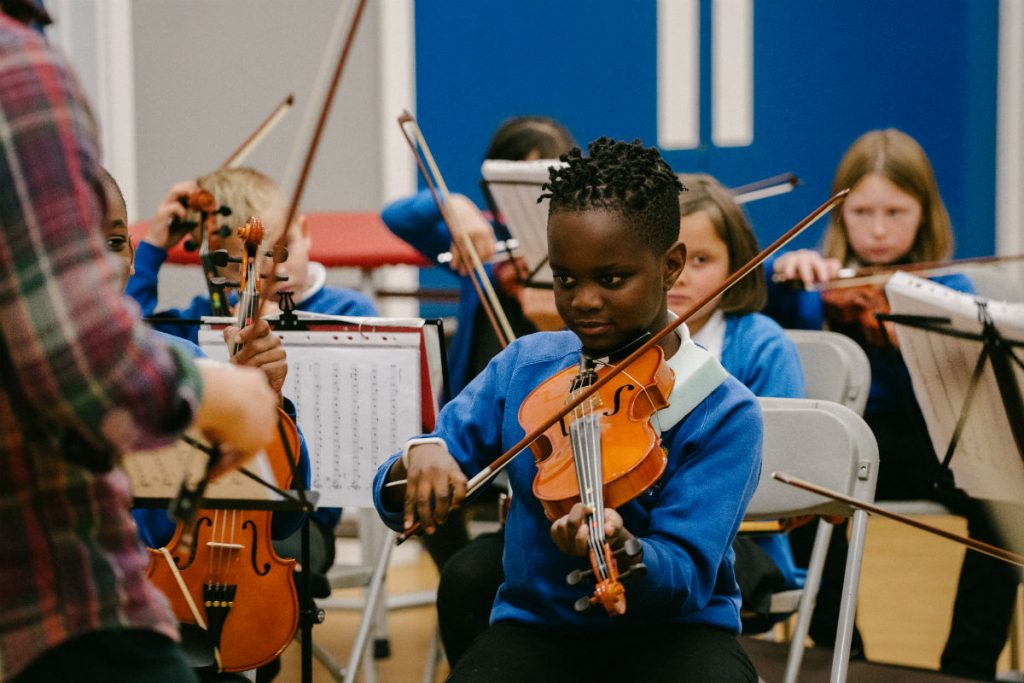
Kate Cameron is undertaking a Collaborative PhD with the University of Leeds and Opera North, looking at the In Harmony programme.
Measuring the impact of music education: a toolkit to evaluate In Harmony, Opera North
What impact does music tuition have on children? People often discuss in broad terms the benefits of music and arts education. Despite firmly believing in the value of music education, I’m wary of discussions founded in generalisations about such benefits. This raises the question ‘How can we know what impact music education is having in a given context?’ In 2018 I started a PhD working with Opera North and the University of Leeds to try and establish the impact that In Harmony, Opera North has on the children involved. The purpose of this work was to better understand the impact of music education in this specific context, while also developing tools that could be used to evaluate music and arts education more widely. The hope was that this research would help to connect discussions of the benefits of music and arts education with something tangible.
In order to tackle this ambitious task, I first needed to identify areas where we might expect to see an impact, before devising theoretically grounded methods of capturing insights into these areas that were accessible to primary school aged children. Three areas of potential impact were identified from existing research: emotional, social and cognitive. Each of these three areas forms a discrete study within the PhD.
Study one, examining the emotional experiences of children involved in the programme, asked participants to select emojis representing emotions and make pencil marks on scales representing different aspects of emotional experiences.
In study two, an examination of the social experiences of children involved in the programme, participants depicted their social experiences using a large felt map, felt figures and coloured craft dots.
The final study, concerned with the potential cognitive impact of participation in the programme, focused on experiences of self-efficacy. Self-efficacy refers to a person’s perception of their ability in a given area, high self-efficacy has been linked to improved subsequent attainment. This study asked participants to complete a questionnaire designed to capture children’s experiences of academic and musical self-efficacy as well as completing an interview focused on the manner in which In Harmony, Opera North contributes to their sources of self-efficacy.
Each of these studies drew upon qualitative research methods that sought to foreground the voices of the children involved. An ongoing process of analysis allows me to dig into the issues that emerge from this rich data. Although it is too early to share final outcomes of the research, I’d like to highlight two broad observations.
1) The children involved in In Harmony, Opera North have varied experiences of this tuition.
2) The elements that form In Harmony, Opera North tuition (instrumental lessons, orchestra, choir etc.) are experienced differently to one another.
These observations demonstrate that narratives seeking to establish one shared perspective of a whole population, or one experience of all musical learning, simplify and distort the diversity that is naturally part of such experiences.
Like all PhDs, this work has come with its own set of challenges. The COVID-19 school closures delayed data collection for study three and demanded subsequent reconsideration of the scope of this element of the research. I have, however, been fortunate to work with schools who, like the In Harmony team at Opera North and the staff at the University of Leeds, have shown a remarkable capacity to adapt to changing circumstances and have supported this challenging phase of my PhD research.
Moving forward my focus has shifted to the analysis of this wealth of rich data. This analysis offers insight into the impact of In Harmony, Opera North for these children at this time and critiques the new tools and methods designed to evaluate the impact of music and arts education. The PhD remains focused on offering context bound insights while also contributing to the way that future evaluations of arts education are conceptualised.


Comments
This post currently has no comments. Be the first to leave a comment.